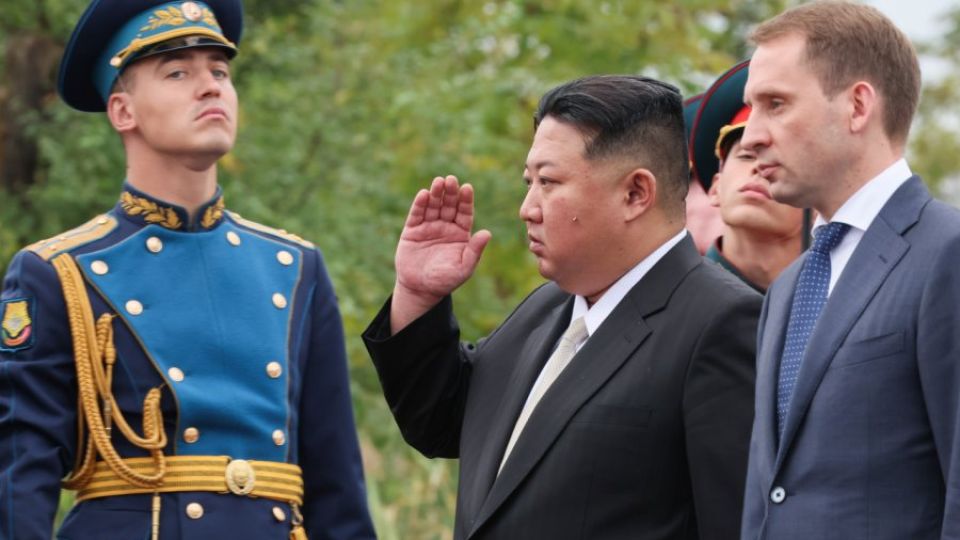September 22, 2023
SEOUL – President Yoon Suk Yeol’s speech at the annual United Nations General Assembly in New York on Wednesday raised the possibility that Yoon has made it official that North Korea now stands behind Russia in terms of Seoul’s priority in foreign relations, which could signal a downturn ahead in the inter-Korean relationship.
As the South Korean leader warned North Korea not to pursue information and technology from Russia needed to enhance its weapons-of-mass-destruction capabilities, in return for supporting Russia with artillery weapons, Yoon used Russia first and North Korea second to describe the relationship between two of the world’s most isolated countries.
“Such a deal between Russia and the DPRK will be a direct provocation threatening the peace and security of not only Ukraine but also the Republic of Korea,” said Yoon. Republic of Korea refers to South Korea and DPRK, short for the Democratic People’s Republic of Korea, is North Korea’s official name.
This followed the remarks by an official of the presidential office Thursday, placing the emphasis on the specific naming order.
The unnamed official said the Yoon administration will cease to “automatically put North Korea’s name first (to describe any of North Korea’s bilateral relationship), unlike in previous settings where whatever misbehaviors North Korea conducted were tolerated.”
This is not the first time South Korea officially described the relationship between the two isolated countries as “Russia and North Korea,” instead of “North Korea and Russia.” Most recently, Foreign Affairs Minister Park Jin used the term “arms trade between Russia and North Korea” earlier in September during his meeting with Russian counterpart, Sergey Lavrov, on the sidelines of the Group of 20 summit in New Delhi.
The naming row reverses the trend that North Korea came first when referring to its bilateral relationship with other countries over the past decades.
For example, South Korea has long referred to the relationship between North Korea and the United States as “North Korea and the US,” but South Korea’s official documents have recently begun to adopt “the US and North Korea.”
This “reverses the declaration that the two Koreas are headed for reunification,” said Jeh Sung-hoon, professor of Russian studies at Hankuk University of Foreign Studies.
“A change in an official expression that has long been conventionally used could signal a drastic change in foreign relations priority,” Jeh said.
Art of ‘which country comes first’
Since the 2000 inter-Korean summit between the then South Korean President Kim Dae-jung and then North Korean leader Kim Jong-il, South Korea has officially put North Korea’s name first.
But in November 2022, the Unification Ministry used the term “US-North Korea relationship” in its document to explain President Yoon’s policy stance toward North Korea and his strategy toward unification.
At the time, the Unification Ministry denied there was any official naming order when referring to both the US and North Korea, saying “the US and North Korea” and “North Korea and the US” were both acceptable.
Meanwhile, as for the naming order of South Korea, China and Japan, South Korea has recently frequented the use of “South Korea, Japan and China,” as Seoul is preparing to host the trilateral summit of the three East Asian countries.
After a trilateral summit of Yoon, US President Joe Biden and Japanese Prime Minister Fumio Kishida in August, Yoon’s office has claimed that the naming order of foreign countries in its official statement “stems from (Seoul’s) foreign relation priority.” But experts said such gestures might put Seoul relations with Beijing in jeopardy in an unnecessary way.
“Changing the naming order by taking (Korea’s relationship with) Japan into account could send a negative signal to Chinese, which is a concerning move,” Jeh said. “A country can rearrange its diplomatic priority without the changes of naming order.”
Another expert said that the art of “which country comes first” began to play out because South Korea is now a country capable of diplomatic communication with consistency in the global stage.
Park Ihn-hwi, professor of international studies at Ewha Womans University, said that South Korea’s quest for pivotal status — as seen through recent consecutive attendances at the Group of Seven summits — combined with the increasing North Korea’s provocation, enables the conservative president to come up with such diplomatic gestures, which was unprecedented among other conservative predecessors in the past two decades.
At a time when Seoul looks to increase chances for diplomatic talks with Beijing, the earlier decision to place China behind Japan in South Korea’s official statements could be offset through upbeat remarks later on.
“There might be concerns that Seoul’s (ostentatious statements) could come at the cost of an adverse effect, but a wider array of options for the diplomatic message that come after them will offset these concerns,” said Park
“South Korea may opt to make necessary gestures when it sees China as diplomatic partner, and vice versa, Seoul may send warnings to Beijing if it poses a threat to the peace on the Korean Peninsula.”


